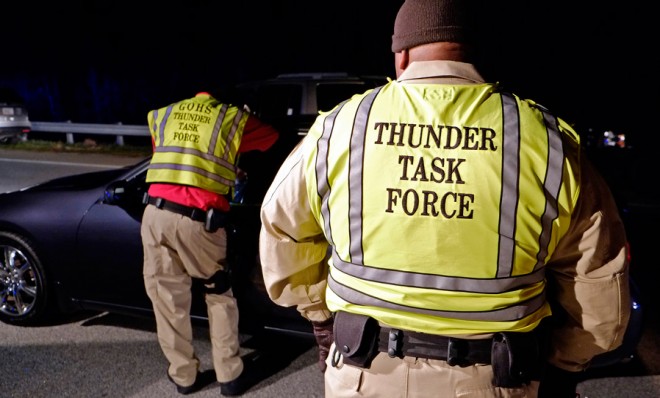Is it time to lower the DUI threshold?
Uncle Sam wants states to crack down


A free daily email with the biggest news stories of the day – and the best features from TheWeek.com
You are now subscribed
Your newsletter sign-up was successful
The federal government's National Transportation Safety Board recommended Tuesday that states lower the threshold for drunk driving charges from 0.08 percent blood alcohol content to 0.05 percent.
(To get a sense of how many drinks this represents, play around with the University of Oklahoma's blood alcohol content calculator.)
The NTSB says the change would pay off by reducing the number of deaths caused by crashes involving impaired drivers, which is still one of the nation's leading causes of death. "To make a bold difference will require bold action," says Deborah Hersman, the NTSB's chairman. "But it can be done."
The Week
Escape your echo chamber. Get the facts behind the news, plus analysis from multiple perspectives.

Sign up for The Week's Free Newsletters
From our morning news briefing to a weekly Good News Newsletter, get the best of The Week delivered directly to your inbox.
From our morning news briefing to a weekly Good News Newsletter, get the best of The Week delivered directly to your inbox.
Not everyone is convinced that dropping the allowable blood-alcohol concentration so drastically is the right answer, however. The NTSB can't mandate the change — the states would have to willingly go along. And the Governors Highway Safety Association supports the current limit, while favoring other changes to address the problem, such as ignition locks for first-time offenders. "We don't expect any state to go to 0.05," says Jonathan Adkins, a spokesman for the governors group.
But should they? Advocates of the proposed policy get some pretty convincing support from the math. The Insurance Institute for Highway Safety estimates that slashing the blood alcohol limit could save more than 7,000 lives a year. Australia lowered its legal limit to 0.05 and saw a 12 percent drop in alcohol-related deaths (as a share of total highway fatalities). Most of Europe enforces the same limit, and some countries have dropped it as low as 0.02.
Some people, however, see the proposal as too draconian. DUI convictions already often carry harsh punishment, and the NTSB is recommending increasing the penalties, even for first-time offenders. "Do we really want to subject a whole new group of people to these penalties?" asks Doug Mataconis at Outside the Beltway.
I'm not here to defend drunk driving, but it strikes me that it might be better to focus our efforts on the heavy drinkers and repeat offenders that are the real danger on the road rather than diverting police resources toward drivers who may be a little buzzed but aren't really very impaired. [Outside the Beltway]
Supporters of the proposed change, however, argue that ensnaring more drivers in the net is precisely what has to happen. Getting repeat offenders and those driving thoroughly inebriated is indeed a priority, they say. But even if the .05 level means that some people would run afould of the law after just one drink, that's perfectly acceptable, as even the minor impairment of one drink could cost them the split second of reaction time needed to prevent an accident.
A free daily email with the biggest news stories of the day – and the best features from TheWeek.com
It's simple, argues Douglas A. Berman at Sentencing Law and Policy. "Unless and until someone can prove to me that tipsy driving is more valuable than innocent human lives, I will praise any and all efforts by NTSB and others to do everything reasonable to reduce the harms of drinking and driving."
Harold Maass is a contributing editor at The Week. He has been writing for The Week since the 2001 debut of the U.S. print edition and served as editor of TheWeek.com when it launched in 2008. Harold started his career as a newspaper reporter in South Florida and Haiti. He has previously worked for a variety of news outlets, including The Miami Herald, ABC News and Fox News, and for several years wrote a daily roundup of financial news for The Week and Yahoo Finance.
-
 What is the endgame in the DHS shutdown?
What is the endgame in the DHS shutdown?Today’s Big Question Democrats want to rein in ICE’s immigration crackdown
-
 ‘Poor time management isn’t just an inconvenience’
‘Poor time management isn’t just an inconvenience’Instant Opinion Opinion, comment and editorials of the day
-
 Bad Bunny’s Super Bowl: A win for unity
Bad Bunny’s Super Bowl: A win for unityFeature The global superstar's halftime show was a celebration for everyone to enjoy
